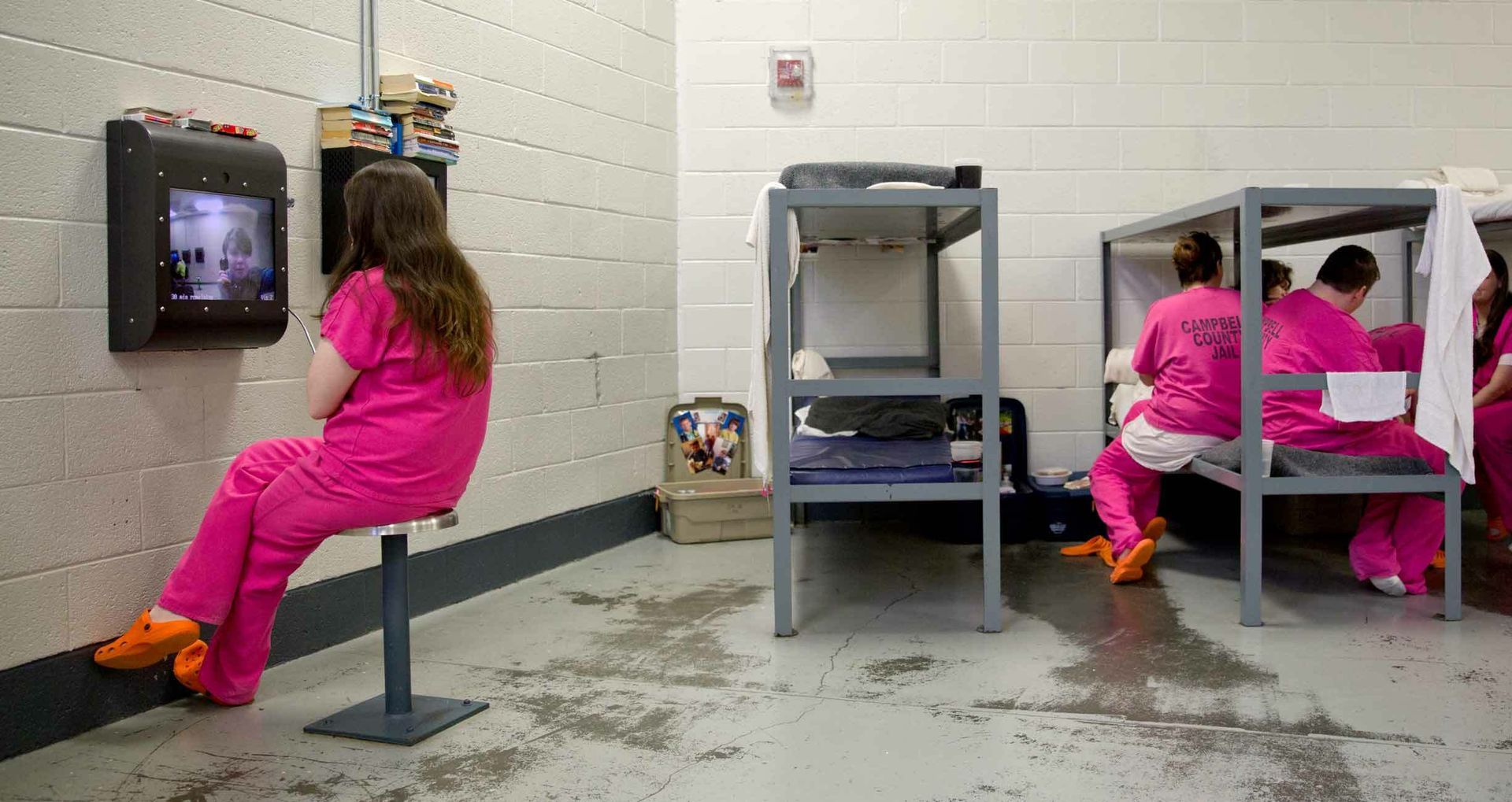Take Free Prison Phone Calls a Step Further - Free Video Visits
Connection while separated helps mitigate the harms of incarceration

In November 2023, Massachusetts became the fifth state in the nation to make prison and jail calls free, joining Connecticut, California, Minnesota and Colorado. Family members have long testified that the high cost of calls have made it hard for their incarcerated loved ones to communicate on everything from helping kids with homework, to organizing what comes next when they’re released.
“My family and I have been advocating for this financial burden to be lifted from our lives for a little over six years now, it feels like a boulder has been lifted off my chest,” said Nia Reid-Patterson, who has a family member in prison, and is part of the Keeping Families Connected / No Cost Calls Coalition, groups and families seeking to make the calls free. “Like many other families, making the choice between paying for calls to keep our families connected and groceries has been nothing short of cruelty from predatory prison phone companies profiting from our already vulnerable families.”
A recent piece from the Vera Institute of Justice suggests taking prison communication a step further, advocating for free video visits for families and loves ones of incarcerated people.
Research shows that consistent family connection during a prison sentence makes a person less likely to return to prison. At least 95 percent of people in state prisons will one day be released and rejoin our communities. Ensuring that they can maintain healthy relationships while incarcerated is critical to their successful reentry into society. The U.S. Department of Justice National Institute of Corrections has stated that “traditional, in-person visiting is a best practice that should continue in all correctional settings when possible.”
In situations where in-person visits aren't feasible, video calls offer an opportunity for families to maintain and strengthen their ties to each other while under the great strain of separation imposed by incarceration. A 2015 study of state prison visits found that the majority of people in prison are held 100 miles or more away from their homes. Socio-economic factors often make it difficult for families of incarcerated people to visit their loved ones in person. Video conferencing can provide an option for people who live far away from their incarcerated loved ones and cannot visit them frequently, as well as for those who might not feel comfortable going through prison and jail security searches that are often traumatizing in their own right.
For a child, being able to see an incarcerated parent's face is especially important in maintaining a bonded connection. More than five million children have had a parent incarcerated at some point in their lives. Video visitation, as a frequent supplement to in-person visitation, can help children stay connected to their parents and mitigate some of the harm they experience while separated by incarceration. Helping families in this way is an investment in the kinds of human connections that build true public safety, but should be an addition to - but never a replacement for - invaluable in-person visitation.
Read the full piece titled "Video Visits for Families of People in Jail and Prison Should Be Free" at the website for the Vera Institute of Justice, a national organization that partners with impacted communities and government leaders for change in seeking an end the overcriminalization and mass incarceration of people of color, immigrants, and people experiencing poverty.










